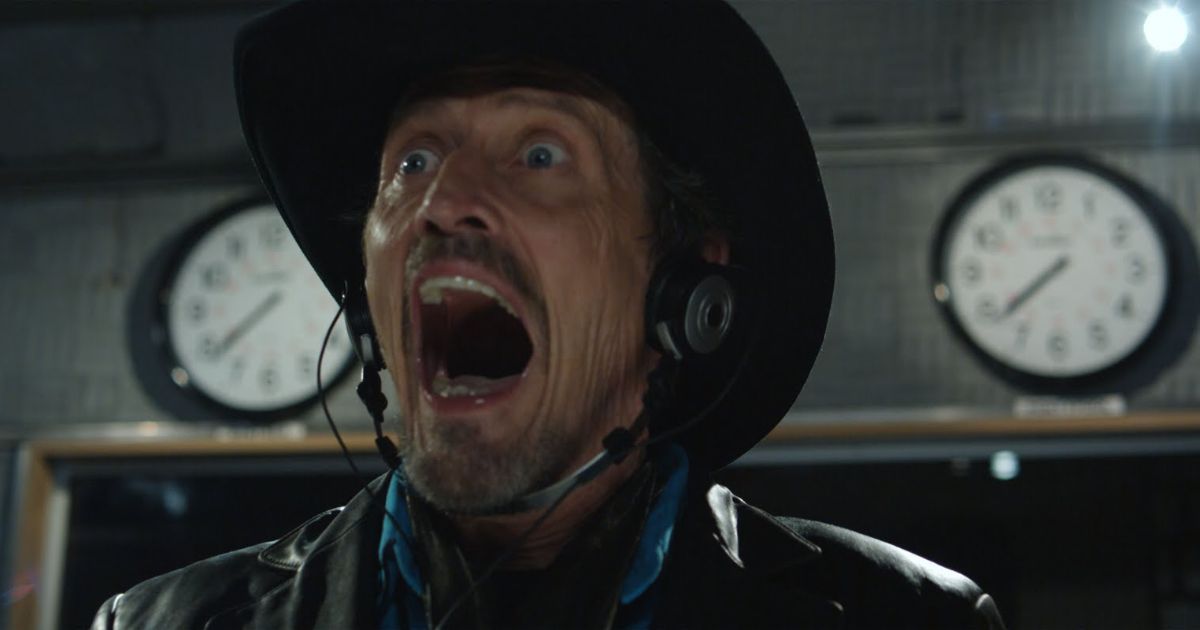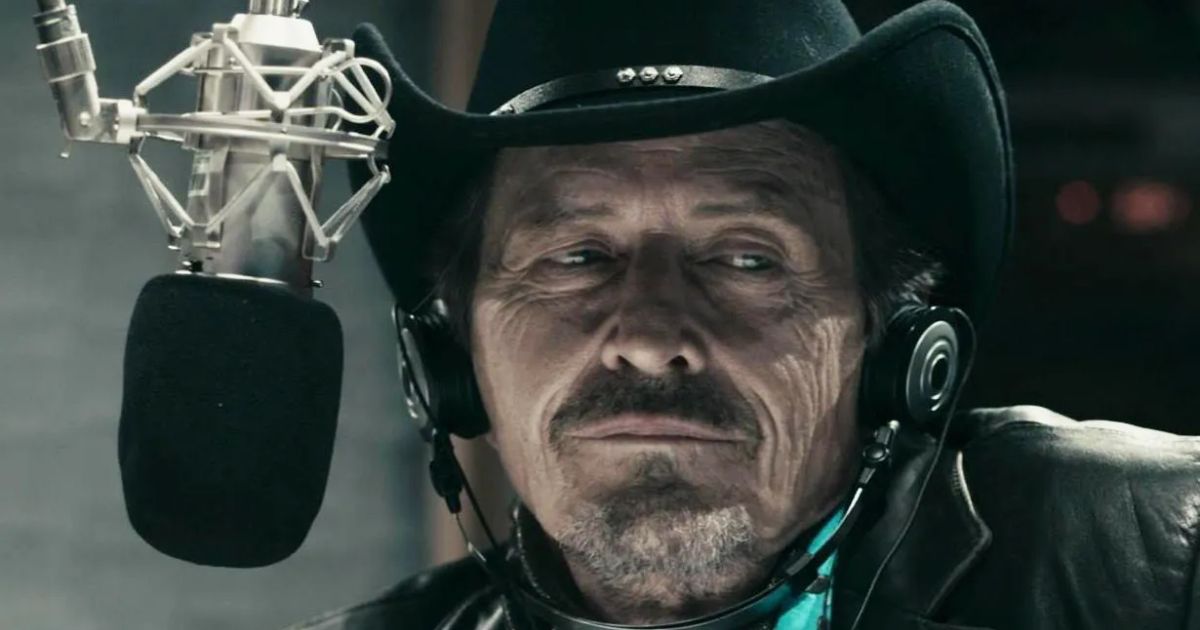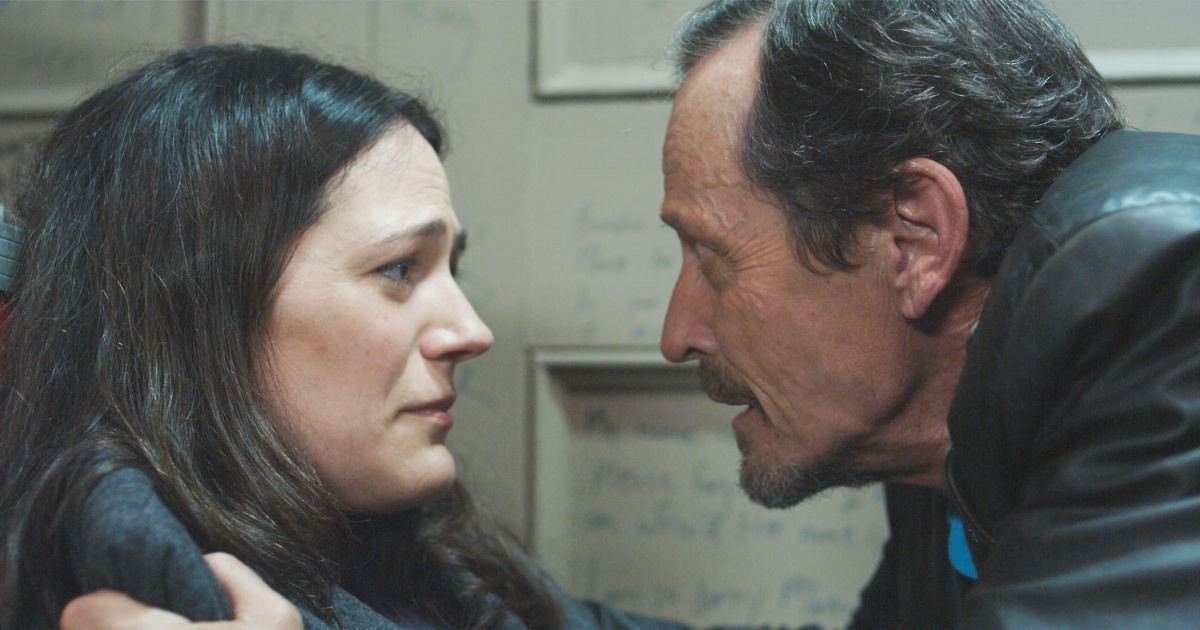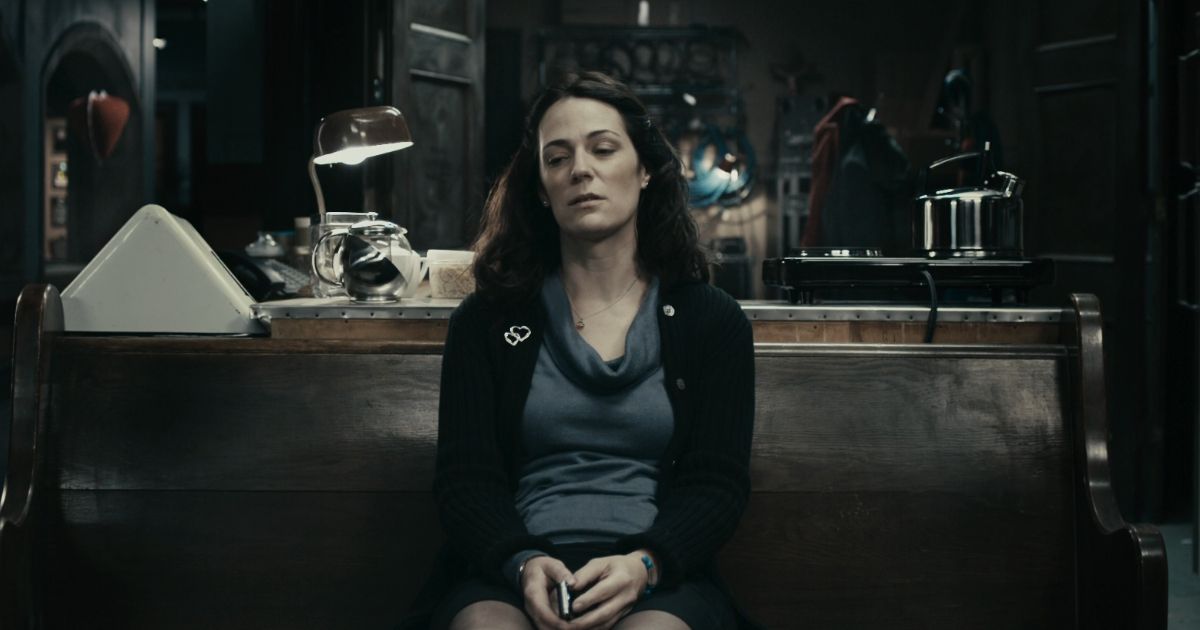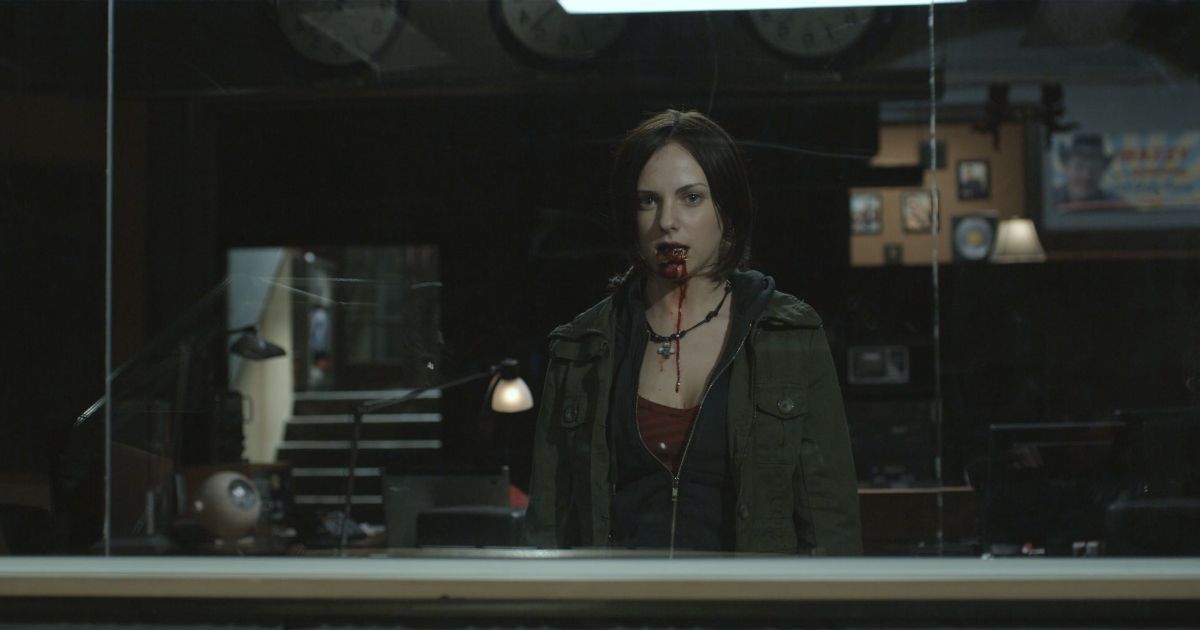The depiction of an outbreak has been seen time and time again on the big screen in a variety of movies about pandemics and viruses. Audiences have seen the more fantastical depictions of zombified contagion, versus the more serious and realistic interpretations of viral epidemic stories. However, the small indie horror flick from 2008 entitled Pontypool gives audiences something new. Taking place in primarily one location, the outbreak supposedly happening in the film surrounds the characters who are stuck inside a radio studio. This is an ambitious decision from the filmmakers to have most of the action take place off camera, but it allows language and dialogue to be the focal point of the film.
Language is the virus in a literal sense in this film. The infected make contagious utterances that trickle a chain reaction of words and phrases which completely zombify the individual. This is one of the more original interpretations of the overall concept that audiences have been exposed to. However, the film is also based on the bestselling book Pontypool Changes Everything by Tony Burgess. Ironically, the film that's based so heavily in words and language, eliminates two words from its source material. The town of Pontypool does change everything, and it is implied in the end credits that the virus has trickled outside the area as a radio announcer is heard repeating the name of the town over and over again. But how does the film establish language as a viral infection that turned so deadly?
The Relationship With the Audience in Pontypool
Protagonist and radio host Grant Mazzy (played by Stephen McHattie) explains how easy it is to gather an audience through words on the radio. Essentially, if it’s exciting (and in his case, polarizing) it will spread like wildfire. The idea that listeners will not fuss over agreeable ideologies, but will recruit more listeners if the host is talking about a polarizing topic, is highly complex for a zombie film (and extremely relevant in today's political climate, as AM radio seems to be dominated by one political ideology).
According to Mazzy, this is where the relationship with the audience comes from, through divisiveness and being a bit edgy, 'telling it like it is' but in a shocking and confrontational way. As such the concepts thrown around in Pontypool are obviously more of a philosophical discussion about linguistics and communication han a shoot-em-up zombie flick.
Pontypool: Stop Making Sense
The key to salvation in Pontypool is to cease the understanding of language. It is revealed that the virus inhabits speakers of the English language, then manifests and copies itself through the host’s understanding of the infected word. Mazzy then tries to use his broadcast to help people…stop understanding words. Ironically, he uses words to try and make civilians stop understanding words. It’s as complicated as it is tense. However, one word in particular is used as an antithesis to the word “kill.”
Mazzy: "Kill is kiss. Kill is kiss."
While trying to save his producer named Sydney from the infection, he realizes that the word “kill” is the catalyst towards her demise. While uttering the aforementioned phrase over and over again, however, the word "kill" started to lose its meaning and strength over Sydney, who is freed from the virus’ hold over her. She looks at him and states:
Sydney: "Kill me."
While theories may suggest that they both could be infected and just rambling on, and on, and on until the fires from above wipe them out, at that moment it could be her saying "kiss me," a metaphorical representation of freedom from language. Kill as in kiss is a beautiful dichotomy of linguistics, and it does come with a heavy heart. It all comes down to the speaker’s understanding of the words, which makes them powerful. Words can have no power over individuals if they lack or refuse understanding; language is also malleable and fluid, and we can change the meaning of things so that "kill" can mean "kiss." This is a highly sophisticated plot element in a film, and also rather confusing initially.
Confusion in Pontypool
Dialogue is the driving force of the entire film. It is not only how the audience receives exposition, character development, and necessary plot information in Pontypool, but is also the conduit for suspense and 'action.' This could be a lot to receive during the first act, as the audience is aching to see the literal action unfolding outside the studio walls. However, the film purposefully sets us with these characters on the inside trapped in a war of words with the outside. Mazzy’s job as a host is to talk, and the producer’s job is to keep him talking. So there lies the initial tension, as he is using his words to try and calm the outside world that he usually riles up with his fiery rhetoric, the world he has not even seen since the viral outbreak and massacres began.
There is even a debate throughout the first and second act of the film that negates the massacre all together. The idea that the outbreak might be a hoax is another fascinating plot element which puts words at the center stage. Words created a rural panic, causing more panic, then destruction. The famous Orson Welles radio play, War of the Worlds, comes to mind (and influenced the writer and director); Welles' adaptation of the H.G. Welles story caused mass terror when people mistook the fictional radio broadcast for factual news. Words can incite all sorts of things.
But who started the outbreak? That is never truly identified. But what is noted is the power of words and language itself has caused conflicts ambost people for generations. The film’s allegorical representation of linguistic violence made for an entertaining, unique, and suspenseful venture into the supernatural.
The Supernatural in Pontypool
Pontypool is not your average zombie film. While there is blood and violence, a lot of it is implied. There are only two sequences where the horror comes from the visuals. Seeing Laurel-Ann, a co-producer to Sydney, be taken by the virus is quite unsettling to viewers. But she is our first look into the reality of the massacre, which coincidentally occurred on on Valentine’s Day (again, "kill" is "kiss"); the day where words are used to woo another becomes the day of a zombie outbreak from language.
However, the masses of infected do infiltrate the studio, but they mostly just ramble and do not attack. This representation of zombies is one we have not seen before. Director Bruce McDonald should be commended for establishing tension and scares by just words themselves, and the possible implications of words upon the audience. Utilizing these unusual and intellectual tactics, he created a compelling and original horror film.

